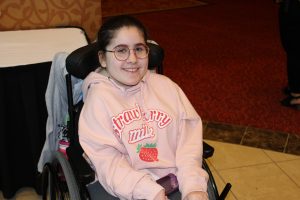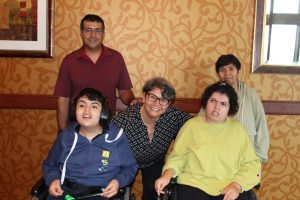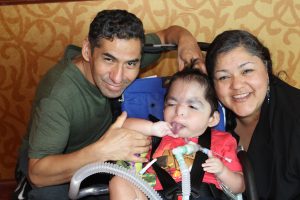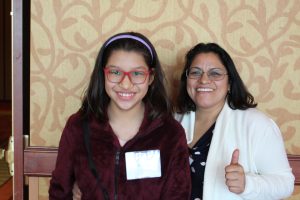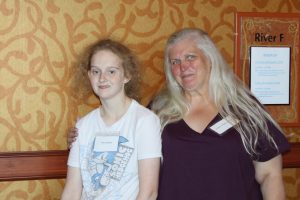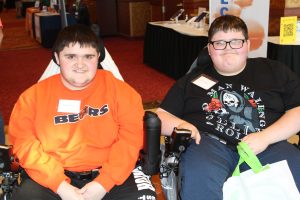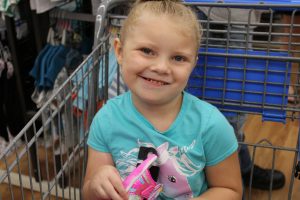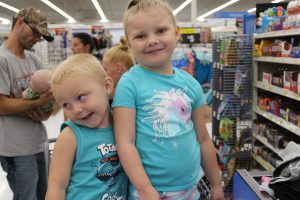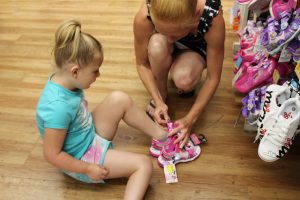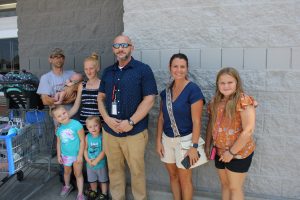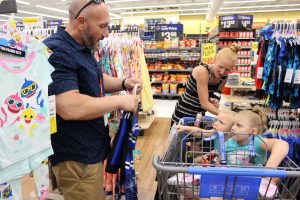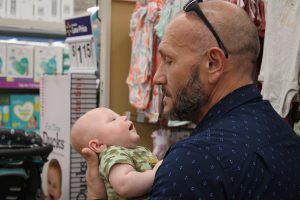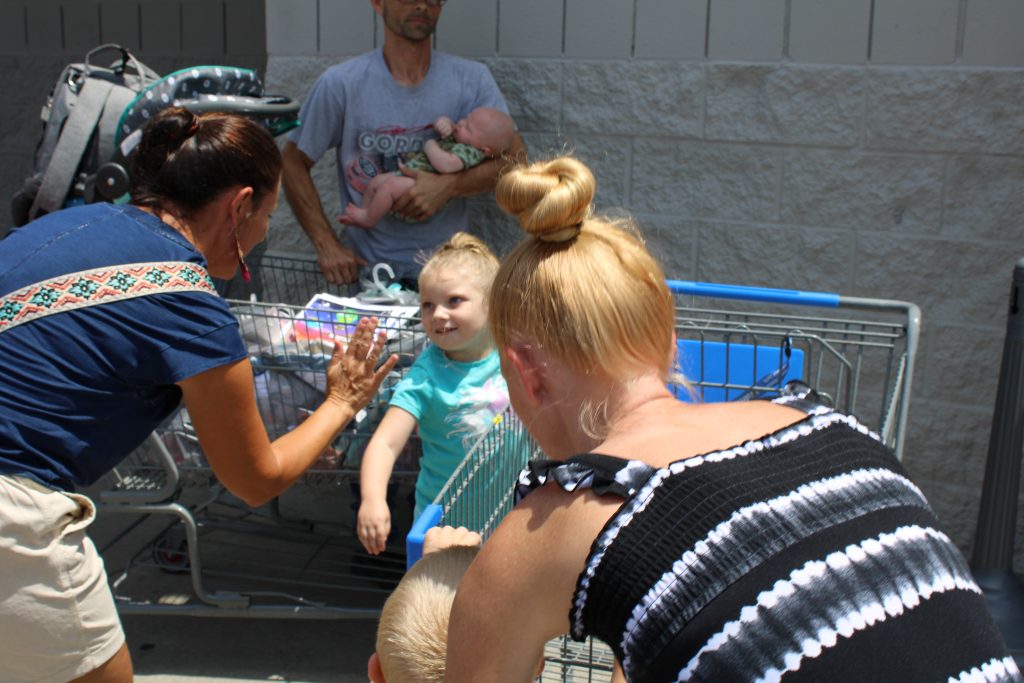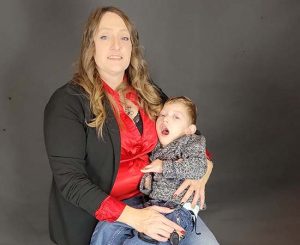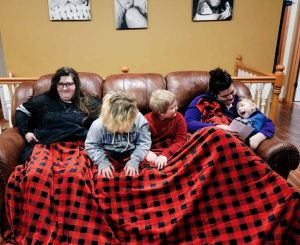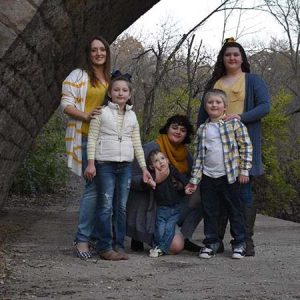Illinois Miss Amazing Empowers Girls and Women with Disabilities
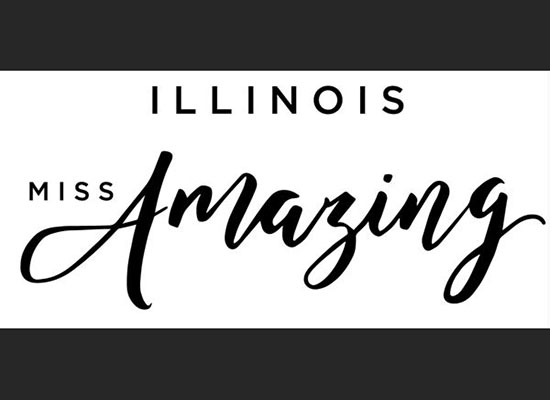
The 2023 Illinois Miss Amazing program is accepting applications through Feb. 15.
Miss Amazing is a national nonprofit program that encourages girls and women with disabilities to consider their goals, challenge themselves and take pride in who they are.
The Illinois Miss Amazing experience brings together a diverse group of participants to build friendships, self-confidence and self-advocacy skills.
Illinois Miss Amazing is now taking applications for its 2023 Amplify event on March 18 in Bolingbrook.
Participation is open to girls and women ages 5 and older who have:
- An Individualized Education Program (IEP) or Individualized Program Plan (IPP)
- A 504 Plan
- Supplemental Security Income (SSI)
- A physician’s records proving disability
The Illinois Miss Amazing Amplify event activities include:
- Show rehearsal
- Interviewing
- Passion presentation
- Hair and makeup
This year’s event also features a new category. Miss Amazing Mentor is for women ages 36 and older. Mentoring can include:
- Helping the younger Miss Amazing age divisions
- Assisting at your job
- Helping at events or with organizations you feel passionate about!
Miss Amazing Mentor participants will take part in the Amplify event interview, passion presentation and personal introduction.
The March 18 Amplify event is at the Bolingbrook Community Center, 201 Canterbury Lane, in Bolingbrook.
Illinois Miss Amazing is accepting applications until Feb. 15 or until all spots are filled.
The program is also accepting applications for volunteers who want to share in the experience. Visit the Miss Amazing website for details about volunteer options.
You can learn more about the Illinois Miss Amazing program and how it helped one of our participants set goals and pursue her dreams at https://dscc.uic.edu/dscc-participant-promotes-illinois-miss-amazing/.
2022 Transition Conference Prepares Youth With Disabilities for Adulthood
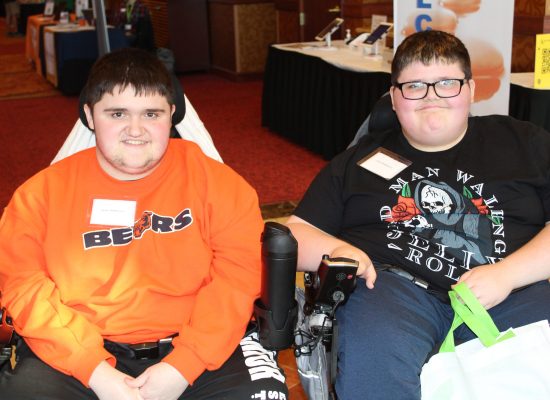
The annual Stepping Stones of Transition Conference gives families and professionals valuable resources and information to support youth on the path to adulthood.
Sixteen-year-old Ayla Etheridge says she’s faced many surgeries and physical limitations throughout her life.
She was born with a spinal lipoma (a mass of fatty tissue) and has experienced nerve damage and scoliosis. At one point, she needed a tracheostomy to breathe.
Ayla now uses a wheelchair and credits her physical challenges with “making my brain better.”
“I always bounce back and don’t want to just sit around and get depressed,” she said.
Ayla is also a careful planner, extremely tech-savvy and loves gaming, character design and writing.
As she attended the Illinois Statewide Transition Conference, Ayla thought more about how these interests and skills will shape her future and career goals.
“I’m very independent and would like to do more things myself,” Ayla said. “This conference has kind of helped me visualize and think about my next steps.”
The 17th annual transition conference, titled “Stepping Stones of Transition,” took place in East Peoria on Nov. 3-4. The conference helps both families and professionals learn about the resources, information and opportunities available for youth with disabilities as they prepare for adulthood.
Ayla and her mom, Rachel, were among nearly 450 people who attended in person.
The University of Illinois Chicago’s Division of Specialized Care for Children (DSCC) helps sponsor the conference and serves on its steering committee.
DSCC also covered the related costs for 34 of our participant family members to attend, including the Etheridges and the Barraza family.
“I am so thankful to DSCC for the fact they covered the cost to be here. That made a big difference in us being able to attend,” Anita Barraza said.
“Education empowers me”
Anita’s son, Daniel, 17, is a DSCC participant. His older sister Diana, 22, left DSCC last summer.
All three attended together along with dad, Jose, and Anita’s mother-in-law, who helped care for Daniel and Diana when they needed a break from conference activities.
“It was great to have my husband be able to be part of the process and that both he and I could listen and take in the information,” Anita said. “(The conference) is also a nice way to spend time together as a family. It’s almost like a mini-vacation for us.”
Anita is an occupational therapist who works with school children, so she understands both sides of the need for information and resources when supporting young adults with disabilities.
“As a parent, we can feel so overwhelmed. Even if help is right there, that reach can be hard to do,” Anita said.
That’s why opportunities to learn about a variety of resources and network with other families and professionals are so important.
“These types of resources educate me on how to best provide for my children’s needs and for their future,” Anita said
Both Daniel and Diana have significant medical needs and are unable to safely live on their own.
Anita says it’s hard to think about, but she realizes must start planning for who can care for Daniel and Diana when she and her husband can no longer do it. Residential placement may be necessary in the future.
The Barrazas also want to learn about possible day programs that can offer one-on-one support to Diana and possible employment options that would work well with her needs.
“Education empowers me to be better prepared to help (Diana and Daniel) have a good quality of life,” Anita said.
“One step ahead”
Anita had told two other DSCC moms about the conference and encouraged them to attend. One of those moms is her friend Yessy Castillo.
Though Yessy’s son, Jacob Ortiz, is only 4 years old, she knew it was important to go.
“I want to be aware of what services are available for Jacob,” Yessy said. “Most importantly, I want to be one step ahead. This conference allows me to get the information on what can benefit Jacob.”
Jacob was born with a cleft palate, an underdeveloped jaw and his tongue pushed back toward his throat. He also had malformations in his hands and feet, and his intestines did not rotate appropriately.
Jacob now has a tracheostomy and depends on a ventilator 24-7 to breathe.
“I appreciate getting the opportunity to meet people and attorneys for advice and support and more legal information on Jacob’s rights,” she said. “If I was not exposed to these events, I wouldn’t know what is available.”
While Yessy speaks limited English, she said the presentations all gave information in a way she could understand.
Melania Tinoco, who also speaks Spanish and learned about the conference from Anita, said connecting with other families at the conference helps her feel more confident.
“It helps seeing we’re all in the same boat and finding out we aren’t alone,” Melania said.
Her daughter Jeny is 14 and has been a DSCC participant since birth. Jeny has Pitt-Hopkins Syndrome, a rare genetic and neurological condition that causes developmental delays.
Melania said the conference has helped her plan for what happens to Jeny if she gets sick and/or can’t take care of her daughter. She also appreciated the breakout sessions on helping youth with disabilities respect their body and feel empowered to say “no.”
“The information has been helpful and inspirational,” Melania said.
Putting information into action
The conference consisted of informative breakout sessions in the areas of employment, education, health care and more.
DSCC participant Vera Lynn Lindquist, 17, and her grandmother, Cheryl Lindquist Calcese, said they enjoyed the “Awareness and Transition Services for Students with Disabilities” session. It gave them helpful information on sex education and tips for building good money management skills.
Cheryl is Vera’s legal guardian. She and Vera planned to start a new budget at home after the conference. Vera will get paid for doing chores, such as cleaning her room, helping with the laundry and feeding her two dogs and cat. She will also get a debit card so she can buy things and track her spending.
Vera has autism, attention-deficit hyperactivity disorder, anxiety disorder from childhood, tinnitus and hearing loss, and seizures.
She enjoys being an advocate, helping others and encouraging everyone to be kind.
During the breakout session, “Your Story Has Power: Great Expectations and Pieces of the Self-Advocacy Puzzle,” Vera stood up and actively participated during the presentation.
Vera and Cheryl hope to attend the transition conference again next year.
DSCC participant Sabrina Doueihi, 20, was among several self-advocates who shared their perspectives during the “Transition Success Stories” breakout session. She is currently a junior at Bradley College, where she is studying criminology. She hopes to go to law school and become a prosecutor.
Sabrina spoke about the importance of staying true to yourself and what you want to do. She also recommended that youth with disabilities focus on what they can do and who can help them achieve their goals.
“Trade stories and network”
For brothers Jaysen and Justen McMenamin and their parents, the transition conference was a good opportunity to plan for life after high school.
Jaysen McMenamin, 18, is a senior at Woodland High School near Streator, where he is an honor roll student and honorary captain of the school’s football team.
He says he’s interested in digital media and related job opportunities. But, he’s still deciding on the path that’s right for him after graduation.
Justen, 14, is a freshman at Woodland High and interested in coding. Both brothers have Duchenne Muscular Dystrophy and are enrolled with DSCC.
Their stepfather, Charles Cusick, said the family wanted to learn more about jobs and career fields that are accessible for the boys and provide more opportunities than what’s available in their small community.
They were also seeking information about camps and other recreation programs for Jaysen now that he has aged out of other programs.
The brothers enjoyed talking with some of the vendors about college resources, job coaching and training programs, and future housing opportunities.
Jaysen would like to live on his own but needs to make sure he has the right supports in place.
The brothers’ mom, Deanna Cox, said she appreciated the breakout session on Supplemental Security Income (SSI) benefits. Jaysen and Justen’s dad passed away in June, and the session helped her better understand how to help her boys keep the benefits they’re entitled to.
The family met up with their DSCC Care Coordinator Kristin Lenover during the conference.
“If families can get away from work, there’s so much they will get out of being at the transition conference,” Kristin said. “Attending in person gives you so much access to all kinds of information. There are also opportunities to meet other families, trade stories and network.”
Thirty DSCC team members attended the conference to network, learn from others and strengthen their skillsets and tools to serve participant families.
DSCC also sponsored the conference’s healthcare track for providers who play a role in the transition from the pediatric to adult healthcare system and those who build youth’s capacity and healthcare skills to prepare for adulthood.
DSCC Transition Specialist Darcy Contri has helped plan the conference since it began 17 years ago. This year’s event was her last before she retires.
“I’m so grateful for and have loved being part of this great work,” Darcy said. “Partnering with talented people from organizations across the state to help others has made a positive difference in so many lives. It is my hope the annual conference will continue to make an impact on improving adult outcomes for youth with disabilities for many more years.”
Visit our Facebook page to see more photos from this year’s conference.
Sensory-Friendly Holiday Events Happening Across Illinois
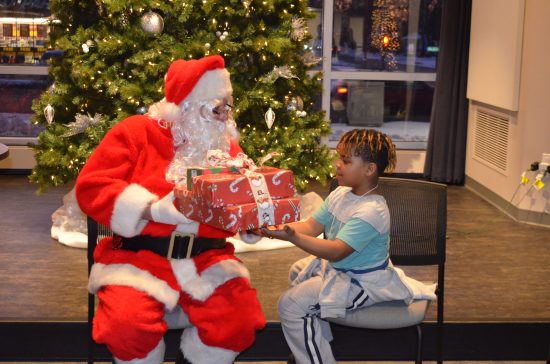
Events feature sensitive Santa, holiday lights, craft activities and more!
Are you looking for sensory-friendly events that the whole family can enjoy this holiday season?
There are a number of sensitive Santa opportunities, festivals and other holiday activities going on across Illinois.
Our Special Events page includes a roundup of opportunities designed specifically for youth with disabilities and special healthcare needs.
Here’s a look at some of the special programs available and other event guides for parts of the state:
- The Secret Sleigh Project coordinates volunteers to provide in-home Santa visits to children who are medically fragile nationwide. See our Secret Sleigh event listing for more details on how to request a visit.
- The National Federation of the Blind is offering letters from Santa and winter celebration letters in Braille to children who are blind or have low vision. The program is for children 10 years old and younger. Please complete the letter request form by Dec. 17. Letters are available in English or Spanish. If you have any questions, call (410) 659-9314, ext. 2236, or email education@nfb.org.
- The Santa Cares program from Autism Speaks and Cherry Hill Programs provides sensory-friendly Santa experiences in Illinois and the St. Louis area on Dec. 4. These visits are free. Keepsake photo packages will be available for purchase. Reservations are required. Visit the Santa Cares website for a complete list of Santa’s stops. Be sure to select “Santa Cares”, “Caring Santa” or “Sensitive Santa” when checking your location. (Note some event dates may vary. Please check your location to confirm your date and time.)
- For families in the Chicagoland area, Chicago Parent magazine provides a list that includes opportunities to visit with Santa and other events tailored to the needs of children with disabilities.
- In central Illinois, check out this list from ChambanaMoms.com for events within driving distance of the Champaign-Urbana area or this list of seasonal light displays and events from the Mahomet Daily.
- SpringfieldMoms.org’s seasonal guide provides a roundup of activities happening in the capital city area.
- Southern Illinois residents can find many fun, seasonal activities on SI Families’ event calendar. It’s packed with ideas including a drive-thru Santa event in Marion, the Lights Fantastic Parade in Carbondale and even a “Home Alone” drive-in movie event at Murphysboro High School.
- The animals at the Lincoln Park Zoo, St. Louis Zoo, and other zoos throughout Illinois are celebrating the season, too! Contact your local zoo to find out what’s happening and when.
Be sure to check our Special Events page often as we add more holiday activities to the list. If you know of a good sensory-friendly event to share, please email us at dscc@uic.edu.
Happy Holidays!
Please note, the University of Illinois Chicago’s Division of Specialized Care for Children (DSCC) is not involved in the organizing or scheduling of these holiday events. If you have questions about a specific event, please contact the event sponsor or organizer.
DSCC Partners with Fowler Bonan Foundation to Offer Back-to-School Shopping Spree for Family in Need
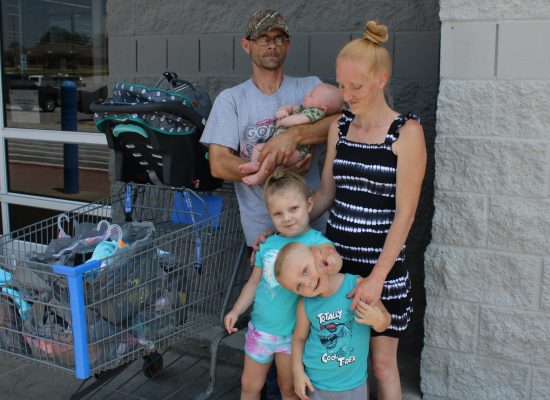
Fowler Bonan Foundation, a southern Illinois nonprofit, worked with DSCC’s Marion Regional Office to provide shoes and clothing for participant Renesmae and her two younger siblings
Renesmae is an outgoing 5-year-old who loves unicorns. She recently started kindergarten with extra sass and confidence thanks to new unicorn outfits and orthotic shoes for the school year.
Renesmae and her two younger siblings received a free back-to-school shopping spree for these much-needed items and more from the Fowler Bonan Foundation.
Renesmae’s care coordination team from the University of Illinois Chicago’s Division of Specialized Care for Children (DSCC) partnered with the foundation to make the special shopping trip possible,
“There’s a lot going on. With the kids starting school, we just didn’t know what we were going to do,” her mother, Misty, said during the shopping trip.
“Everyone at DSCC is really nice. They help with rides to the doctors and other things, but we never expected this. I can’t believe we’re shopping! It’s just above and beyond.”
A family in need
Renesmae has been a DSCC participant for most of her life.
“She had viral meningitis and severe seizures when she was 2 months old,” Misty said. “She has partial paralysis on her right side, can’t open her right hand on command or raise that arm very high, and limps or drags her foot when she walks. Thankfully, she hasn’t had any seizures in a while.”
Renesmae also has hypertonia, which makes her muscles stiff and difficult to move, and homonymous hemianopsia, a condition that causes her to see only one side of the visual field of each eye.
Misty describes Renesmae as “outgoing and not one bit shy.”
“She’s my absolute handful and, like the country song says, can be ‘t-r-o-u-b-l-e,’” she said. “She’s also a great big sister and is always doing stuff for her little brothers. She’s such a mother hen to Liam and Aries.”
Liam is an infant, and Aries is 3. Aries is now starting Head Start, a program that promotes school readiness.
Renesmae’s DSCC care coordination team includes Care Coordinator Cheryl Golliher and Program Coordinator Assistant Renee Woodson. They partner with Renesmae’s family to find treatment options, transportation to appointments and other services to help Renesmae thrive.
“The family let me know they needed help getting her orthotic shoes,” Cheryl said. “Renesmae wants to be like every other kid. The shoes look like any other pair of shoes but are different sizes and fit her brace. The shoes are an important part of keeping her focused on positive things, not other distractions.”
As Cheryl and Renee looked for options for Renesmae’s footwear, they learned all three siblings needed new clothes and shoes for the school year.
A local nonprofit ready to help
Our DSCC care coordination teams can help our participant families find community funding opportunities and resources to meet these important needs.
Amy Jones, DSCC Regional Manager for our Olney and Marion offices, and her team contacted the Fowler Bonan Foundation to see if they could help Renesmae’s family. The foundation provides clothing and shoes to low-income children through their Clothes for Southern Illinois Kids initiative.
“They agreed to help buy clothes and shoes for all of the children and asked that we join their volunteers to help the family shop,” Amy said. “We contacted the family and worked with the foundation and our team to get everything set.”
Bobbie Fox is a Fowler Bonan board member who began volunteering with the organization nearly two decades ago.
“My family was new to the area, and I worked as a store manager. Back then I did all the shopping for our families on my lunch break,” Bobbie explained. “Now, more people know about us and that we offer help in 17 counties throughout southern Illinois. We work with local organizations, community businesses, teachers and others to fundraise and make sure that every bit goes out locally to reach our families and help kids.”
Time to shop
Everyone met at Walmart in Anna on July 20 for the shopping trip. The group included Renesmae’s family – her parents, Misty and Jerry, and little brothers, Liam and Aries – and Bobbie from the foundation and her daughter, Saylor.
Cheryl and Renee were unable to attend. Their teammate Jimmy Baldi, a DSCC Program Coordinator Assistant from the Marion office, volunteered to join the group and help shop.
The first stop was the shoe department. Mom and dad located the right sizes, but the kids had a tough time deciding with so many options to choose from. Renesmae selected Minnie Mouse sandals. Aries went with the Batman sneakers.
“We want to be sure that the kids have shoes and other essentials, such as socks and underwear, in addition to everyday clothes,” Bobbie explained. “The foundation typically provides $100 to $150 for each child to cover these needs.”
A team effort and “win-win for all”
Everyone did their part to help Misty and Jerry feel comfortable and find items the kids needed.
The group took turns hunting for unicorns and superheroes (Aries’ favorite), suggesting styles and finding the right sizes.
Everyone’s efforts were worth it. At the checkout, the kids were happy campers and Misty couldn’t believe they each had five new outfits for school along with plenty of underwear and socks.
Jimmy even snuck in some baby time with Liam.
“I’m really amazed and just so thankful to the foundation and everyone,” Misty said. “These will be hidden away until school starts so that they don’t get messed up.”
As the shopping trip ended, Bobbie exchanged high fives with Renesmae and got a big hug from Aries.
“It’s such a joy to be able to do this,” Bobbie said. “The focus on the kids, partnering with other organizations and individuals. It’s a team effort and a win-win for all.”
The Fowler Bonan Foundation also ordered Renesmae’s orthotic shoes. Jimmy later traveled to the foundation’s headquarters in Harrisburg to pick them up. Cheryl delivered the shoes to the family.
What started as a team effort, ended as a team effort.
“The Foundation is a great resource and so quick to respond to the needs of our families,” said Cheryl. “The shopping trip helped relieve so much stress and worry for the family. It was a great team effort in every sense of the word. I hated to miss the shopping trip, but Jimmy volunteered to go and really loved going.”
We’re thrilled our Marion Regional Office team and the Fowler Bonan Foundation came together to support Renesmae’s family. A big thank you to Fowler Bonan for providing the generous shopping spree!
If you would like to volunteer to help the foundation or know of a family or child in need, please contact them at FowlerBonanFoundation@gmail.com.
You can see more photos from the shopping trip on our Facebook page.
Award Opportunity for Students Who Fight Ableism in Education
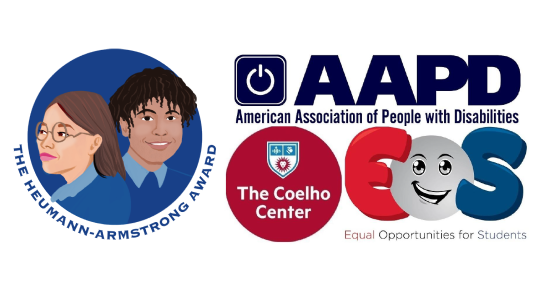
The Heumann-Armstrong Award is for students in sixth grade and up, including higher education
Ableism can take many forms. It is discriminating against someone because of their disability. It can also include bullying, isolation or the refusal to give accommodations to a student with a disability.
Like other forms of discrimination, ableism shows up in ways that are both blatant and subtle.
The Heumann-Armstrong Award is for students in sixth grade and up, including higher education, who have experienced and shown a passion for fighting ableism in education.
The American Association for People with Disabilities, The Coelho Center and Equal Opportunities for Students (EOS) sponsor this award program.
The award started in May 2021. It is named for two disability rights champions:
- Judith (Judy) Heumann, a lifelong and internally recognized advocate for the rights of individuals with disabilities
- Elijah Armstrong, who has epilepsy and founded the EOS organization to help tell the stories of marginalized students in education
The award program defines a disability as any physical or mental condition that affects how someone attends classes, participates in extracurricular activities or socializes with classmates.
Students can submit an application in writing or by video. All applicants must be willing to do a video interview upon winning the award.
Six individuals will receive an education award that includes a $1,000 prize and a video interview posted on EOS social media platforms. Six semi-finalists will also receive recognition.
See the 2022-23 Heumann-Armstrong Award application page to apply.
You can also check out the Heumann-Armstrong Award frequently asked questions and the 2022-23 award opening video for more details.
The deadline to submit applications is July 22.
If you have questions, contact equalstudentopportunities@gmail.com.
Resources and Tips to Promote Good Mental Health
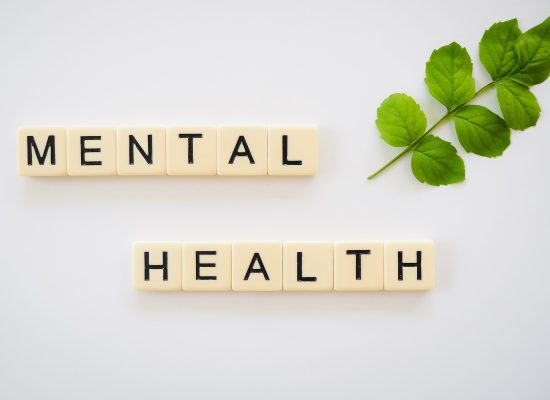
Helpful tools and resources for individuals of all ages in honor of Mental Health Awareness Month
May is Mental Health Awareness Month.
Society often focuses on physical health rather than mental health, but both are equally important. Mental health plays a big role in our overall well-being.
Although the pandemic’s challenges have led to more conversations about mental health, talking about it can still feel difficult or out of reach.
It’s important to remember that we all face challenges in life that can affect our mental well-being.
Understanding the topic can help us maintain good mental health and be more informed when experiencing a mental health condition or crisis.
Our Division of Specialized Care for Children (DSCC) team has pulled together a few resources to help get started:
- Life can be challenging, but every day shouldn’t feel hard or out of our control. A mental health screening at mhascreening.org can help provide a quick snapshot of our personal mental health. The screening is free and anonymous. The screening results can help start a conversation with your primary care provider.
- Our DSCC Transition Tools include a Mental Health Resources tip sheet with a helpful list of crisis hotlines, service locators, videos and more.
- Mental Health America’s (MHA) Back to Basics Toolkit, available in English and Spanish, covers a wide variety of topics and tools including stress management, coping skills, recognizing when help is needed and where to find help and support.
- The National Alliance on Mental Illness (NAMI) has resources geared toward kids, teens and young adults. NAMI also provides a coloring and activity book and step-by-step guidance to help parents explore and talk to children about emotional topics or mental health challenges.
- The Illinois Department of Public Health (IDPH) has developed a new “Youth, Adolescent and Young Adult Suicide Prevention” webpage. It aims to help family members and others prevent suicide by knowing the facts about suicide, who is at risk, warning signs specific to this age group and protective factors.
- The Caregiver Action Network provides a Blueprint for Families of Loved Ones with Mental Health Issues.
Remember the National Suicide Prevention Lifeline at (800) 273-8255 and the Crisis Text Line (text HOME to 741741) are available 24 hours a day, seven days a week.
A new, nationwide three-digit number will also be available this summer for people facing mental health crises. Starting on July 16, anyone in the United States can call 988 and get connected to the National Suicide Prevention Lifeline.
More mental health resources are available in our online Resource Directory. You can also follow our DSCC Facebook page for more reminders and tips throughout the rest of the month.
Knowing the basics about mental health will help us all feel better prepared when needed. Support is out there, and recovery is possible.
Summer Camp Fun for All Ages and Abilities

Here’s a list of day, overnight and virtual camps to help you find the right fit for your child
It’s hard to believe another school year will soon come to an end.
The good news is there are a variety of opportunities to help your children stay engaged and continue learning during the summer break.
We’ve compiled a list of virtual, day and overnight camps across Illinois for all ages.
Does your child want to make new friends? Develop new skills? Meet others with their condition or foster their independence?
Our 2022 summer camp list can help you find an opportunity that is the right fit.
Many camps are returning to in-person sessions this summer. Virtual camp opportunities are also available.
All these camps are accessible for a variety of special needs and abilities, including many of our program’s eligible medical conditions.
Our events calendar shows the summer camps listed by date. You may also search for events in your area by clicking on a regional office near you.
Know of an in-person or virtual summer camp opportunity to add to our list?
Send us the details at dscc@uic.edu. We’ll continue to update our list of camps and activities, so please check back often.
DSCC Intern Grateful for Education Opportunity of a Lifetime
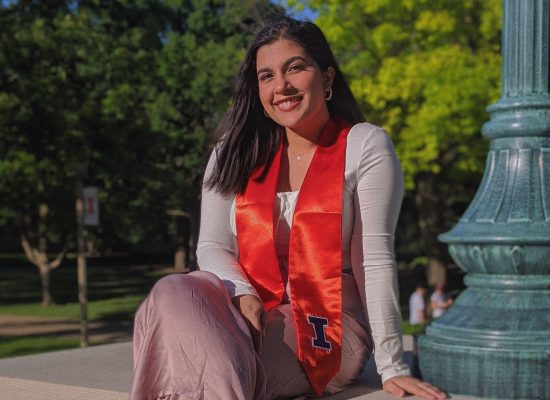
“My time with DSCC has not only shaped me as a social worker but also shaped my idea of the perfect team.”
As part of the University of Illinois Chicago, the Division of Specialized Care for Children (DSCC) offers internships and other valuable educational opportunities to college students. These opportunities help students gain real-world experience and complete their advanced degrees.
They also help develop the next generation of social workers, nurses and health care providers to serve children and families with understanding and compassion.
To celebrate Social Work Month, we’re sharing how a DSCC internship provided life-changing experiences for one young social worker.
“My time with DSCC has not only shaped me as a social worker but also shaped my idea of the perfect team,” said Sruthi Thinakkal.
Sruthi wrapped up her two-semester internship with our Marion and Olney Regional Offices in December 2021. She recently graduated with her master’s degree in social work through the BHWELL Scholars Program at the University of Illinois at Urbana-Champaign.
Drawn to partner, help and connect
Sruthi said she discovered DSCC through her advisor. When she first began looking for internships, she was struggling to find the right fit.
About a month before she had to make her decision, Sruthi’s advisor mentioned a new internship opportunity with DSCC that recently opened.
Sruthi did her research and liked DSCC’s mission and approach to helping families. She decided to apply.
“The emphasis was on partnering with families and communities to help children and youth with special healthcare needs connect to services and resources,” she said. “Also, that children and youth with special healthcare needs should be at the center of a seamless support system really stuck with me.”
When Marion and Olney Regional Manager Amy Jones reached out to Sruthi, the “deal was sealed.”
“She spoke passionately about providing families support and teaching them the skills needed for success. Her enthusiasm and sincerity were contagious,” Sruthi said.
She felt excited but worried she would miss out on important opportunities because of the pandemic and working remotely.
Sruthi soon learned she was “in a really good place” and that remote work would be smooth and successful.
“A true team approach”
“From the beginning, the Olney and Marion regional offices provided me with information, cheat sheets, everything I needed to get situated. They would reach out in so many ways,” Sruthi said. “We used chat and had weekly meetings to bond and catch up. It was AMAZING, a true team approach.“
Sruthi shadowed DSCC Care Coordinators during their comprehensive assessments and person-centered planning conversations with families. She also helped Care Coordinators with data entry, scheduling and making calls to families.
One of Sruthi’s major accomplishments during her internship was a guardianship project for DSCC families and staff members in southern Illinois.
Sruthi created an extensive, easy-to-click-through tool kit that includes definitions for the various guardianship processes, step-by-step instructions, courthouse contacts, blank copies of needed forms and legal resources. She presented the toolkit to a group of more than 50 DSCC staff members in the southern region of Illinois.
“Sruthi’s project focused on (the question), could families complete this type of process on their own?” Amy said. “She diligently contacted all 32 courthouses in both regions, put together a comprehensive tool kit, then partnered with Care Coordinators to make calls and contact families. Already, one family she helped has successfully completed the process and another continues to work through the process.”
Amy praised Sruthi’s eagerness to learn and ability to soak up information.
Lessons for a lifetime
The end of the internship was bittersweet for both Sruthi and the Marion and Olney office teams.
“It’s hard leaving a fantastic team but the lessons I’ve learned will be with me always,” Sruthi said.
“One of the biggest takeaways for me is the importance of just being there and listening. Chatting about every aspect of a kiddo, providing space to vent, helping to arrange something for a family that has so much going on every moment and obstacles no one expected, getting to know parents who are so worried about their kiddos that they forget about their own health, and hearing how they feel alone, not lonely,” she continued.
“These conversations with families each month create an everlasting relationship and lessons that I will carry with me for a lifetime.”
Sruthi is now moving to Chicago and launching her career in social work. She’s ready to take what she’s learned at DSCC and put it into action.
“I’m so grateful for my internship at DSCC,” she said.
“I will be working with the Rush Craniofacial Center team and believe that my internship experience at DSCC was key to helping me move into this position. I’m looking forward to building new partnerships, connecting individuals to the programs and tools needed for self-determination, and making sure that each patient knows that they have a team behind them that genuinely cares.”
DSCC Participant’s ‘Baby Bucket List’ Spreads Awareness and Joy
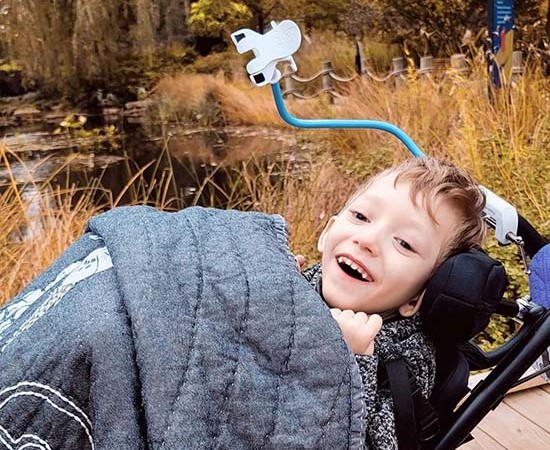
Elijah’s Baby Bucket List is a social media movement raising awareness about lissencephaly while helping 4-year-old Elijah live life to the fullest
Elijah is quite the celebrity and not just among his nine older siblings.
The 4-year-old was born with a rare, terminal genetic condition called lissencephaly.
The devastating diagnosis led his family to create a bucket list to fill Elijah’s lifetime with as much happiness and adventure as possible.
“Elijah’s Baby Bucket List” is now a popular social media movement dedicated to raising awareness about lissencephaly. It also provides opportunities for Elijah to live life to the fullest while spreading joy and making new friends and memories.
Elijah’s story has appeared on TV, in print and online. He also has thousands of followers from around the globe on platforms including Facebook, Instagram, YouTube and TikTok. His followers read about his latest experiences and enjoy videos of his infectious laughter and smile.
“He’s always happy, always laughing. It’s hard to stay sad when he’s around,” said his mother, Amy Tarpein. “He is unconditional love and the embodiment of pure joy.”
“Choose joy”
Elijah, a participant with the University of Illinois Chicago’s Division of Specialized Care for Children (DSCC), was born deaf. Approximately two months later, he was diagnosed with lissencephaly.
Lissencephaly occurs when the folds and grooves of the brain do not develop correctly.
“It was devastating. The doctors said he wouldn’t live beyond the age of 2,” Amy recalled. “We were packed and ready to spend time at my sister’s. Instead, I loaded up the kids, left the hospital and we drove to Florida to see the ocean.”
During that trip, the idea for Elijah’s Baby Bucket List was born.
“It can all be really hard, but we decided that we could either sit around and feel sorry about things or choose to give Elijah the best, God-filled life possible while he’s here. We decided to choose joy, be grateful, encourage others and hope,” Amy said.
Through “Elijah’s Baby Bucket List”, the family shares inspirational messages, videos and updates as they work through experiences on Elijah’s bucket list.
“We’ve shared about the first time he heard his sister sing, visits to the hospital and doctors, and our adventures to the Morton Arboretum, Beyond Van Gogh Exhibit, St. Louis Aquarium, hiking in the mountains, observing stars with a NASA scientist, picking pumpkins, playing in the leaves and a private screening of ‘Clifford the Big Red Dog,’” Amy said.
“The focus is on Elijah doing or watching the things on the list and making as many memories and friends as possible!”
Other recent highlights include the city of Quincy declaring Sept. 8 as Lissencephaly Awareness Day and lighting the Bayview Bridge purple in his honor. The Quincy Herald-Whig newspaper covered the special honor and Elijah’s story last fall.
“Our town came together to spread awareness and advocate for kids who are differently-abled. They lit up the bridge purple for Elijah, ” Amy said. “I can’t express the emotion that overwhelmed me when we were also given a beautiful photo of the purple bridge taken by a local artist. The community support for my family has been amazing.”
“Be a light”
Amy says her family loves Elijah fiercely. He has five grown siblings and four at home — Avayha, Isaiah, Kaylynn and Mackenzie – who dote on him.
They enjoy spending time together reading, studying, looking at and doing art, listening to music and cuddling.
“Avayha practices violin with him. She tells him the strings and what she’s playing. He loves music,” said Amy. “When we go to museums, she will read all of the descriptions and tell him about the exhibits and artwork.”
Elijah’s lessons include learning sign language and using his computer with an eye gaze device.
“He’s doing stuff they said he would never do,” Amy said. “He’s gotten really good at matching his letters, numbers, colors and shapes. He signs mom, dad, call, dog, no and will also sign ‘all done’ when he doesn’t want to get into his AFOs, the orthotics braces, because they are uncomfortable.”
Elijah’s sister Avayha wants to take him to Paris to drink lemonade and see the museums. She set up a lemonade stand to fund the trip, but the COVID-19 pandemic soon followed.
“Avayha asked if she could learn web design, so she could build up her own site,” Amy said proudly. “At 9-years-old, she studied and set everything up on her own. She’s determined to take him.”
Avayha’s website is Lemonade in Paris.
Amy calls caring for Elijah life-changing in the best possible ways.
“If someone had told me that five years ago, I would not have believed it. This was not the plan, but I love my life,” she said.
More to Explore
DSCC has worked with Elijah’s family since 2019. As Elijah continues to check off items from his baby bucket list, DSCC continues to help support his family’s journey.
“DSCC collaborates with a wide range of agencies,” said Elijah’s Care Coordinator Kathy Thomas. “We’re here to listen and help families with children with complex health needs navigate insurance, health care and other resources.”
DSCC’s Care Coordinators work countless hours helping families set and achieve their child’s goals based on their family’s unique needs.
Amy continues to plan new adventures for Elijah, stay positive and share the positivity with others.
“Elijah continues to defy the odds,” she said.
“Some things can’t be fixed, only carried! Life is full of things you can’t fix, no matter how well-intentioned you are. God, your higher power or whatever you believe in, always sends someone. I can’t explain half the stuff that happens in our lives, but we are braver together. This was not my plan, but I am truly blessed to be his momma.”
To learn more about Elijah and lissencephaly, follow Elijah’s Baby Bucket List on Facebook or visit elijahsbabybucketlist.com.
Illinois Miss Amazing Program Accepting Applications

The program provides a nurturing, empowering experience for girls and women with disabilities
Illinois Miss Amazing is accepting applications for its 2022 program.
Miss Amazing is a national nonprofit program for girls and women with disabilities. The program aims to build self-confidence and vital self-advocacy skills for participants as well as nurture a sisterhood of girls and women from different walks of life.
According to the Miss Amazing website, girls and women with disabilities face a unique set of economic, social and political challenges. The Miss Amazing program seeks to encourage future leaders and break down stereotypes by empowering girls with disabilities from a young age to take pride in who they are, to set ambitious goals and to fight for the respect that they deserve.
Miss Amazing is open to girls and women ages 5 and older who have:
- An Individualized Education Program (IEP) or Individualized Program Plan (IPP)
- A 504 Plan
- Supplemental Security Income (SSI)
- A physician’s records proving disability
Illinois Miss Amazing is accepting applications for participants and volunteers for its annual Amplify event on April 9 at the Yellow Box in Naperville. The application deadline is March 1.
The Illinois Miss Amazing experience includes:
- Show rehearsal
- Interviewing
- A fun evening wear presentation
- Sharing your passion and creativity on-stage
- Building friendships
This year’s event is in-person and will feature two shows and one big celebration.
Learn more about the Illinois Miss Amazing program and how it helped one of our participants spread her wings on stage and off at https://dscc.uic.edu/dscc-participant-promotes-illinois-miss-amazing/.
Inspire someone you know to participate in Illinois Miss Amazing.
Applications will be accepted until March 1 or as soon as all spots are filled.



